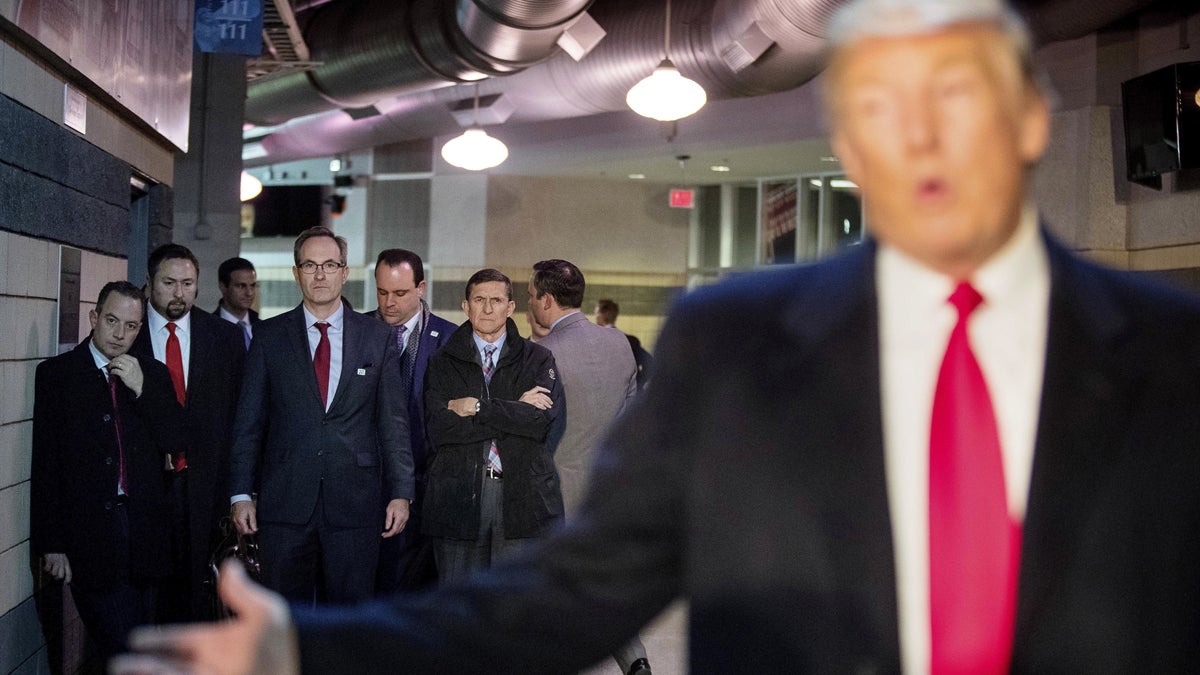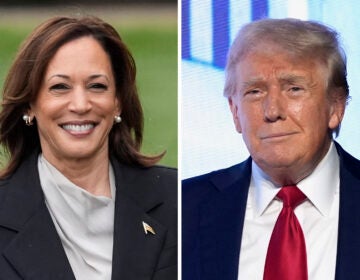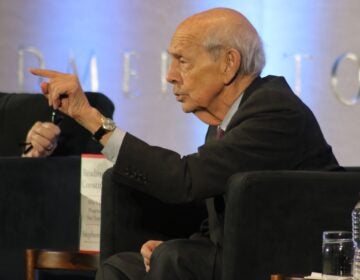How to rise above populism and demagoguery

Trump Chief of Staff Reince Priebus
It’s almost High Noon in America. Across the land, something unexpected is happening: People on the left and right are coming together.
In fear.
The concern was evident last week at the National Constitution Center, where an overflow crowd gathered for a panel discussion, “Populism, Demagogues, and Constitutional Democracy.” All five panelists, writers and academics representing a range of political philosophies, expressed concern about what to expect from the president-elect. Their reasons varied.
Demagogue vs. statesman
Nancy Rosenblum, professor of ethics in politics and government at Harvard University, began by defining demagogue, from the Greek, for a politician who panders to the public. “A demagogue serves self-interest, a statesman serves the public interest,” she explained.
“Trump is definitely out for himself,” said Robert Kagan, senior fellow at the Brookings Institution, who served in various capacities in the State Department from 1984 to 1988. Kagan has not minced words as a Washington Post contributing columnist, writing that Trump has a “disordered personality,” responded in ways that are “not rational” to Democratic National Convention speakers, was “incapable of empathy,” and exhibited self-destructive psychological pathologies. And he wrote all of that in a single column, dated Aug. 1, 2016.
Kagan believes the true test of the president-elect’s character will come after he takes office and is regularly faced with a cadre of people saying no to him.
Is free speech at risk?
Possible effects on free speech were addressed early in the hour-long discussion. Acknowledging that any president can threaten free speech, Kagan said Donald Trump is more worrisome because “We count on the president to value democratic principles. It’s not certain he does.” The worry seems to be supported by the president-elect’s evident lack of respect for, and tendency to lash out at, the mainstream media, the intelligence community, scientific information, allies, longstanding international agreements, and any individual, group, institution, policy, or principle that disagrees with him.
“I don’t think the courts are going to save us,” concluded John Yoo, professor of law at the University of California at Berkeley, visiting scholar at the American Enterprise Institute, and arguably the most conservative participant in the discussion. His point was that the courts are slow, and would not provide the most efficient way of redressing infringements on expression. Even so, because speech is protected by the Constitution, Yoo was not as concerned about it as areas more easily influenced by presidential action.
Endangering free speech more than what a Trump administration might do to constrain it, Rosenblum said, is “the temper of the times,” the simmering intolerance that has been raised to a boil by Trump’s rhetoric, sharpening economic, educational, cultural, and racial fault lines. The overheated political climate makes it difficult to talk calmly and rationally about any of the subjects that have to be discussed if the country is to move forward.
Michael Kazin, professor of history at Georgetown University and editor of Dissent magazine, said the enthusiasm of president-elect Trump’s base is a double-edged sword, positive for the support they offered him in the campaign, but negative in that they are not inclined to listen to alternative positions or to compromise, which are key to forming a government and getting things done.
Foreign policy: fewer checks mean greater concern
Kazin and Yoo mentioned foreign policy as an area of great concern because a president has more leeway there than in domestic areas, which are more subject to legislative and judicial checks. Greater autonomy, compounded by this president-elect’s inexperience, unpredictability, surprising if not alarming statements and behavior (antipathy for NATO, refusal of daily security briefings, apparent willingness to tear up international trade and climate protection agreements, just to name a few), and almost limitless potential for ethical conflicts between his businesses and the national interest, provide a minefield of potential disasters, at home and abroad.
Kazin offered the hope that Trump’s narrow margin of victory may constrain him, noting that winning just 46 percent of the popular vote does not give him a mandate.
Yoo concurred, saying the president-elect must cultivate legislative support to invest in infrastructure, reshape trade, restructure immigration, and reform healthcare: “Trump needs congressional Republicans more than they need him.”
Inquiry or inquisition?
But there’s been no Kumbaya moment so far. Even departmental hand-offs are unusually adversarial, particularly at the Energy Department, where climate personnel and policy appear to be as endangered as the polar ice caps.
A few days after the NCC discussion, it was widely reported that the Trump transition team had sent the Department of Energy a list of 74 unusually probing questions, asking for names of employees and contractors working on the international climate agreement, about laboratory employees’ salaries, publications, and memberships, and about research models used to predict climate conditions and energy use. Less of a businesslike inquiry than a green inquisition. (The Department of Energy has since rejected the request for names.)
What’s a citizen to do?
Scheduled long before election day and moderated by Peter Beinart, associate professor of journalism and political science at City University of New York, the lively Dec. 8 town hall discussion attracted so many to the NCC that the event was simulcast within the building, in addition to being live streamed.
The topic continues to resonate as the Trump administration takes shape, and populist movements roil governments and unsettle countries worldwide, particularly across Europe.
Here at home, if a concerned citizen isn’t inclined to catch the next bus for Canada or spend the next four years in the basement, how should she respond? All four panelists recommended getting involved. Resist the policies you disagree with and work on the local level, said Kazin. Rosenblum suggested supporting groups likely to be hurt by looming policy changes, whether in healthcare, the environment, or elsewhere. Yoo advised reinforcing state and local institutions able to constrain the worst effects of the Trump administration. And Kagan recommended vigilance above all else.
WHYY is your source for fact-based, in-depth journalism and information. As a nonprofit organization, we rely on financial support from readers like you. Please give today.




